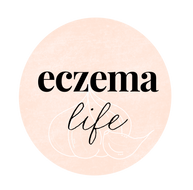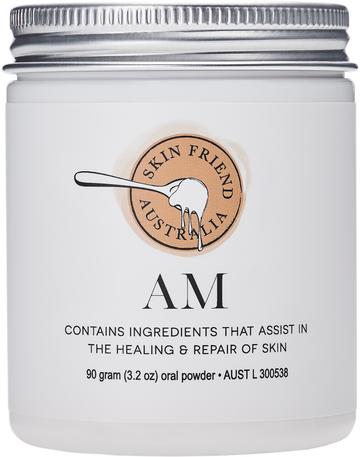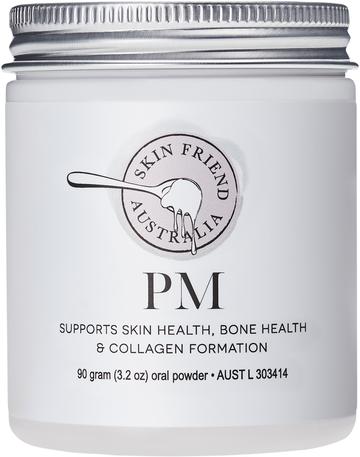Is eczema an autoimmune disease?

Eczema is an itchy skin condition that can be painful and chronic. Eczema sufferers commonly have allergies and consuming a food you are allergic to elicits an IgE immune system response. The result is itchy, inflamed skin.
However, avoiding your diagnosed allergy foods does not usually fix your eczema (or it only partially helps). So researchers in Vienna hypothesise that because the immune response can still occur after the allergy foods are avoided eczema “could be autoimmune" (Valenta 2009).
A drug company recently declared that "eczema is an autoimmune disease". And they stand to profit greatly from their findings. Their patented drug will hit the market (if it passes safety tests) and again we will clamour for the promise of a quick fix, only to find the side-effects are worse than the original skin disorder.
Remember that topical steroids were once the miracle cure eczema sufferers were praying for. Topical steroid addiction has been known of since the 1970s and after using (and stopping) topical steroids your eczema can spread to areas where it previously did not appear. So tread carefully when it comes to taking new drugs for eczema - there is a safer way.
Is eczema an autoimmune disease?
Not usually… there is no conclusive evidence showing that eczema is always an autoimmune disease. Not everyone with eczema has allergies, not everyone with eczema has abnormally high levels of antinuclear antibodies in their blood. So it might be short sighted to categorise all cases of eczema as autoimmune.
Let’s look at the facts: eczema is not only related to allergies and immune-system imbalance, it’s also strongly linked with the following:
- 17 to 33% of eczema sufferers have fatty liver (Kimata, 2001)
- 52% are sensitive to salicylates (Loblay and Swain 2006)
- 36% are sensitive to amines (amines are in probiotics) (Loblay and Swain 2006)
- 35% react to MSG/glutamates (Loblay and Swain 2006)
A widely replicated major risk factor for eczema is also genetic dysfunction: namely the loss-of-function mutations in the structural protein filaggrin. Microbes and infections are also involved in the appearance of eczema.
All of these factors worsen eczema. Avoiding allergies is a good place to start but if it's your only strategy to prevent eczema, then your skin problem is likely to prevail.
Liver health and eczema - the forgotten link
Dr Kimata from the Department of Pediatrics and Allergy at the Ujitakeda Hospital in Kyoto (Japan) 17% to 33% of children with eczema have a non-alcoholic fatty liver. Your liver health is important to detoxify toxins and chemicals, and food sensitivities and allergies can result. So while treating allergies and the immune system is useful, we can also look at the underlying cause of allergies which is liver dysfunction and gut dysbiosis.
Leaky gut is related to coeliac disease and gluten intolerance. Fatty liver can be caused by nutritional deficiencies, low antioxidants in your diet, and high sugar and high fat intake. Fatty liver is reversed with supplementation and a change in diet but scarring and damage can occur from frequent drug use.
“Should I avoid garlic as it boosts the immune system?”
“If I have eczema should I take drugs to suppress my immune system?”
My opinion differs to many medical professionals but most would agree that eczema is not an autoimmune disease. Some people with eczema also have an autoimmune disease (i.e. an overactive immune system) but that is not the rule for everyone with eczema.
I have worked with eczema patients who have had overactive immune systems, which were overactive because they were eating foods they were highly sensitive to and they had nutritional deficiencies.
Long-term use of topical steroids can also cause problems, and often topical steroid withdrawal is involved and causes the eczema to be stubborn and hard to treat.
Their calcium levels were also very low and this caused insomnia (which caused more stress). Once these patients changed their diets and took Skin Friend supplements their immune systems gradually normalised. This took about 8 months.
For those with eczema and immune system issues, I find they need to be healthy long-term. For other eczema sufferers who have no autoimmune issues and no topical withdrawal symptoms, their eczema clears a lot faster.
“Is the immune system incompetent and should it be silenced with drugs?”
In most cases, no. The immune system is usually an intelligent mechanism which alerts us when something is not right within the body. Just because you cannot identify the trigger/s does not mean you should presume the immune system is faulty (of course it may be faulty in some cases but we cannot assume this in all cases of eczema).
Often a radical change in diet and environment, plus nutritional support are needed to get the body back in balance. Sleep and laughter also help eczema according to Japanese researcher Dr Kimata.
Changing the diet is hard work and some people like taking pills as it is the easy option. But drugs often come with side-effects and you need to weight up if the side-effects are worth the short-term relief.
Some people absolutely need to take immunosuppressant drugs in order to live without pain so I’m not saying never take the medical option. I’m saying do both if you have to. But do your research on side-effects first as the drugs can end up worsening your eczema symptoms in the long-term so what begins as mild eczema can end up covering your whole body.
A natural approach to eczema
At the Eczema Life Clinic in Sydney we see a lot of new eczema patients with symptoms such as loss of hair and eyebrows, cracks at the corners of their mouth, insomnia, itchy skin and chronic dry and flaking skin and these are common nutritional deficiency signs, that are easily reversed with the right supplementation.
Best nutrients for eczema
- Calcium carbonate supplementation can improve sleep as calcium deficiency is a common cause of insomnia. While calcium citrate may worsen eczema, if you are sensitive to citric acid, calcium carbonate is a well-tolerated option. Calcium carbonate is also a salicylate sensitively remedy.
- Hair loss and cracked corners of the mouth are typical B vitamin deficiency signs, however high dose B vitamins can cause insomnia and deficiencies in other B vitamins so only take the RDI amounts (for example, vitamin B3 RDI for adults is 14mg to 18mg, and vitamin B6 is 1.3mg to 2mg per day).
- Zinc is an important nutrient for eczema and the best form is zinc gluconate as it has shown to benefit seborrheic dermatitis and eczema.
- Zinc is stored in the liver so take only the RDI amount: 8 to 14 mg for adults, and 3 to 7mg for children.
- Vegan omega-3 from algae to increase EPA levels in the blood, as EPA is anti-inflammatory.
You may have found supplementation has not helped your eczema and here are some possible reasons:
Supplement ingredients to avoid if you have eczema
- Avoid a high dose of vitamin B3, such as 50mg, which is a common dose in multi-vitamin supplements as it can trigger a histamine flush that dilates the blood vessels, reddens the skin and worsens eczema.
- Vitamin A (retinol forms and cod liver oil) causes severe skin flaking so check these ingredients are not in your supplements.
- Glutamine and protein powders can significantly worsen eczema as they are rich sources of glutamates/glutamic acid - another form of MSG.
- Herbal ingredients can trigger a worsening of eczema if you have undiagnosed salicylate sensitivity. So if your skin is worsening, stop taking herbs and check for salicylate sensitivity.
- Avoid folic acid as it can worsen eczema and topical steroid withdrawal as it dilates the blood vessels.
- Do not take megadoses of zinc, especially zinc picolinate, which is banned in Australia due to adverse side effects from over absorption. High doses of zinc, taken frequently, can lead to vomiting, kidney damage and deficiencies in other minerals including copper and iron. The correct RDI amounts are listed above.
- 35% of eczema sufferers react adversely to probiotics as the are rich in amines (the reaction is caused by amine sensitivity).
These are common mistakes people make when trying supplements for their eczema.
The Eczema Diet and the Skin Friend supplements were initially designed for my two-year-old daughter who had eczema. I no longer wanted to use topical steroids and a nurse had advised us to avoid salicylates (which are in most supplements, in ingredients such as herbs and fruit extracts).
Skin Friend contains zinc gluconate, calcium carbonate, magnesium, organic vitamin E, chromium (for blood sugar balance), natural beta-carotene and B group vitamins (but not folic acid), in powder form which is easier to absorb than tablets or capsules.
After taking Skin Friend for 3 months, patients have reported renewed hair growth, less inflammation, softer skin, healing of mouth ulcers and cracks around the mouth, and their skin is no longer itchy.
When you change your diet you are changing your body’s biochemistry, improving your genetic health and normalising your immune system - this does not happen overnight. We need to change our mentality about seeking quick-fixes for eczema. Take the time to feed your skin from the inside out - you'll look and feel better for it.
NOTE: The Eczema Detox is Karen's latest book which is her most updated version of the Eczema Diet. You can read more on the difference between these 2 books Here
Products
At Eczema Life, we recommend nutritionist Karen Fischer's low food chemical program (The Eczema Detox) along with additive-free supplements for skin health and wellbeing. Click on the images to view more details:
Karen is a nutritionist and award-winning author of The Healthy Skin Diet and The Eczema Diet; and a frequent guest nutritionist on Today Extra (Nine Network). Karen’s “breakthrough diet for eczema” featured on prime-time 7 News in June 2016.
References
Valenta, R., Mittermann, I., Werfel, T., Garn, H. and Renz, H., 2009. Linking allergy to autoimmune disease. Trends in immunology, 30(3), pp.109-116.
Kimata, H., 2001. Fatty liver in atopic dermatitis. Allergy, 56(5), pp.460-460. http://onlinelibrary.wiley.com/doi/10.1034/j.1398-9995.2001.056005460.x/full
Loblay, R.H. and Swain, A.R., 2006, ‘Food Intolerance’, Recent Advances in Clinical Nutrition, retrieved from www.nsw.gov.au.
O'Regan, G.M., Sandilands, A., McLean, W.I. and Irvine, A.D., 2009. Filaggrin in atopic dermatitis. Journal of Allergy and Clinical Immunology,124(3), pp.R2-R6.




